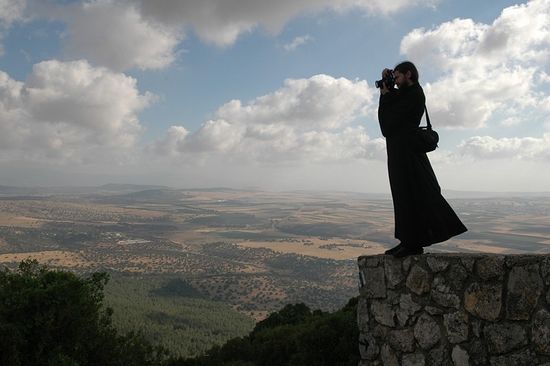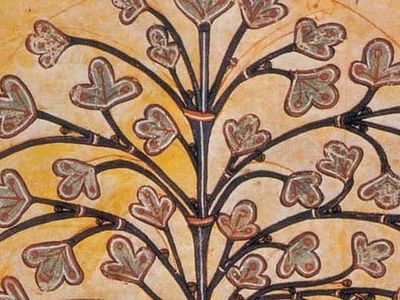Daniel Akst in his 2011 book on self-control wrote, “Exercising self-restraint can be depleting, yet it can also be ennobling.” The ennobling quality of self-restraint is something the fathers knew quite well. The Greek word for self-control, ἐγκράτεια, means continence, temperance, or sobriety by containing, rather than releasing through impulsivity, whatever passes through one’s mind. Saint Basil the Great in his letter to Ourvikio, refers to self-control as “denial of the body and confession to God…, to yearn for nothing, to not be stirred to passion by what the eye sees and the ear hears.” He calls it “the health of the soul, a power that frees and heals, a grace from God.” Certainly, self-control is a great virtue whose presence can be seen in asceticism and whose absence can be seen in impulsivity. We can even frame impulsivity in the language of Saint Basil as a denial of God and a confession of the flesh, a yearning for something, an incitement by what the eye sees and the ear hears, a sickness of the soul, a power that enslaves and corrupts, a temptation from the devil. It is significant that, with the exception of some rare Saints like Saint Nicholas, few are born ascetics, but asceticism is something that can be learned for the sake of the love of God. This also suggests the possibility of changing one’s amount of self-control or conversely one’s impulsivity.
Interestingly, today behavioral scientists have found that “there is a kind of self-control strength that people possess or can develop and that this strength can be used to help people attain personal goals or standards (Baumeister, 2001; Baumeister, Heatherton, & Tice, 1994; Muraven & Baumeister, 2000).” Behavioral scientists view self-control as analogous to a muscle of the mind and the failure of self-control as muscle fatigue. The term they use to describe the process of giving into an impulse after initial resistance is ego-depletion. The self is emptied of its resources for resistance and then follows the impulse to the very end. In his dissertation regarding impulsivity in those suffering from Attention Deficit Hyperactivity Disorder (ADHD), Andrew A. Lubusko notes that “the ego depletion phenomenon is important because it suggests that situational factors can influence self-control and that individuals may vary in self-control strength.”
If self-control is indeed like a muscle, the question becomes how can we strengthen that muscle. With the body, we go to the gym, eat right, get plenty of rest between workouts, and may get the help of professional trainers to reach our peak potential. We also take care to avoid injury by not lifting something that is too heavy for us at present. The same principles apply to self-control. On the one hand, we may need to change our situational factors so that our self-control muscle gets some rest and on the other hand, we may need to exercise it in areas where doing so is safe from the danger of injury. This is precisely what the Church has always taught. Monks “flee the world” and go to monasteries for a life of asceticism, but also to be far from the temptations that would put too much stress on efforts for self-control. Thus, on the one hand, they are not exposed to provocative sights on the beach, the revelry of bars, or the availability of non-fasting food on fast days. On the other hand, they follow a strict schedule with the help of others, they spend time at prayer keeping their mind still, and they lead a simple life of asceticism. In the process, their will becomes stronger and they are changed, but, and here we depart from the psychology of self-control, not simply because their ability for self-control has increased.
For the fathers, the goal is not to acquire an iron will for “white-knuckling” one’s way through any temptation. Rather, the aim is to have a supple will conformable to the will of God. True, the holy fathers were great ascetics and athletes of the spirit, but this achievement was always from their perspective through the grace of God. Their foundation never was their own abilities, their own efforts, their own self-control, but the power of the God Who loves them, cares for them, and desires to make of them, sons and daughters of light.
Thus, while an ascetical path is integral to leading a life of self-control that spawns true freedom and creativity, the starting point for walking that path is not self-discipline and human effort, but a recognition of human weakness and need to flee to God as one’s most cherished refuge. More than anything, what is required is humility. Saint John Climacus writes, “But let us who are weak and passionate have the courage to offer our infirmity and natural weakness to Christ with unhesitating faith, and confess it to Him; and we shall be certain to obtain His help, even beyond our merit, if only we unceasingly go right down to the depth of humility” (Ladder of Divine Ascent, Step 8). Saint Anthony the Great also noted this in recalling his experience, “I saw the snares that the enemy spreads out over the world and I said groaning, ‘How can I pass through such snares?’ Then I heard a voice saying to me, ‘Humility.’”
If one looks at the 12 step groups, one can see that the primary elements of that fellowship involve cultivating humility through 1) an acknowledgment of the problem and our own inadequacy in overcoming it, 2) turning to God in prayer and asking for help, 3) communicating with others and asking their support and assistance, and finally, 4) making amends/asking forgiveness for the destructive consequences of past behavior. In the Church, the mystery of confession offers all of these advantages, but most importantly the healing grace of God.
This is why it is so important for Christians struggling with impulsivity to find a spiritual guide for assistance. It is a practical manifestation of humility that can also help preserve humility, the foundation for freedom from the tyranny of impulsivity. Thus, Saint John Climacus writes, “Those of us who wish to go out of Egypt and to fly from Pharaoh, certainly need some Moses as a mediator with God and from God, who, standing between action and contemplation, will raise hands of prayer for us to God, so that guided by Him we may cross the sea of sin and rout the Amalek of the passions. That is why those who have surrendered themselves to God, deceive themselves if they suppose that they have no need of a director. Those who came out of Egypt had Moses as their guide, and those who fled from Sodom had an angel. The former are like those who are healed of the passions of the soul by the care of physicians: these are they who come out of Egypt. The latter are like those who long to put off the uncleanness of the wretched body. That is why they need a helper, an angel, so to speak, or at least one equal to an angel. For in proportion to the corruption of our wounds we need a director who is indeed an expert and a physician” (Ladder, Step 7).
The acquisition of self-control is more than the avoidance of those things which lead to a loss of control and a regression to impulsive behavior. Ultimately, the acquisition of self-control involves healing. There are positive steps that the impulsive person may undertake that are healing and beneficial, leading to an increase in self-control. These include making amends and asking forgiveness, when appropriate. Saint John of Kronstadt teaches that asking for forgiveness brings peace, a necessary prerequisite for self-control, ‘’If you fall, rise and you shall be saved. You are a sinner, you continually fall, learn also how to rise; be careful to acquire this wisdom. This is what the wisdom consists in: learning by heart the psalm, ‘Have mercy upon me, O God, after Thy great goodness,’ inspired by the Holy Spirit to the king and prophet David, and say it with sincere faith and trust, with a contrite and humble heart. After your sincere repentance, expressed in the words of King David, the forgiveness of your sins shall immediately shine upon you from the Lord, and your spiritual powers will be at peace” (My Life in Christ). When at peace with God, at peace with oneself, at peace with one’s neighbor, it suddenly becomes easier to not fight impulsive provocations, but instead to place everything humbly in the hand of God. So doing, you finds your reservoirs of self-control are not depleted, you are at rest besides still waters and can easily turn away from temptation, because you find your strength in the ocean of God’s love.




